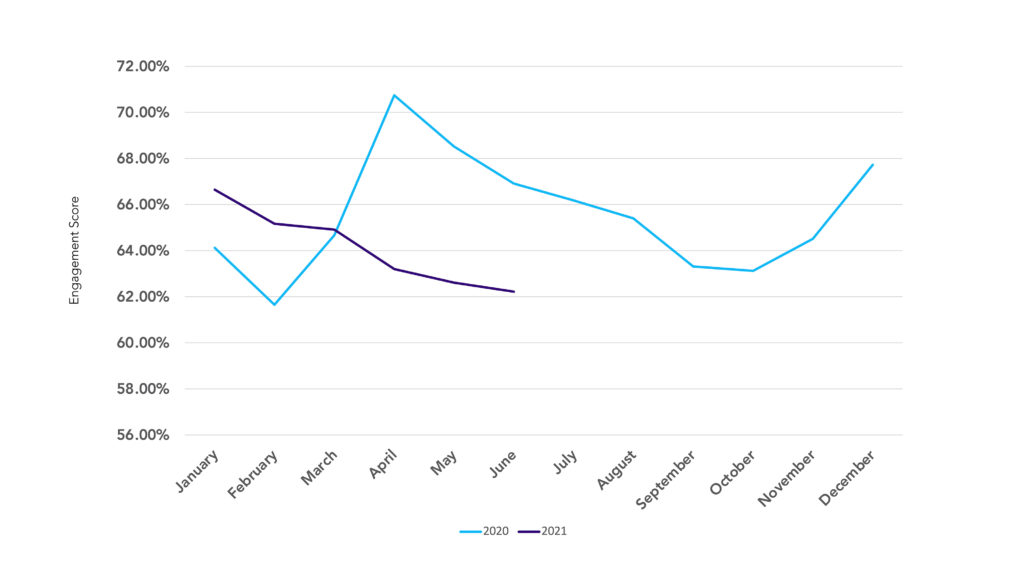An underlying problem driving the tight labor market is dropping levels of employee engagement, according to data collected by Energage for its Top Workplaces awards program.
There has been a steady drop in employee engagement levels since the start of the year, indicating that employees just aren’t that into their employers right now.

“What we’re hearing from employees through this data is that they are rethinking their commitment to their employers,” said Greg Barnett, chief people scientist of Energage, the company that collects and crunches the data used in the nationwide Top Workplaces awards program. “We’re seeing lower levels of loyalty as employees leave their employer for a new one.”
According to Energage, survey data collected from employees at more than 4,000 companies show that employee engagement levels have fallen to a level lower than anytime during the pandemic.
Data shows that employee engagement sharply increased in April 2020 as companies scrambled to ensure employees that they were prioritizing their health and well-being during the pandemic with initiatives such as work-from-home. After this initial spike, engagement declined but started inching up at the end of the year, before falling again in 2021.
“The new year started with a one-point decline in engagement, and has fallen ever since,” said Barnett.
A Rocky Relationship
The Energage research shows that some industries have rockier relationships with employees than others, with Education, Hospitality, Utilities and Telecommunications, Services, and Manufacturing showing large decreases in employee engagement in 2021, off by six points or more compared to the second quarter of 2020.
“Employee burnout and stress has been a significant factor over the last year, and employees in these industries have been especially hard hit,” said Barnett. “In many companies, initial hiring freezes and lay-offs have been hard to reverse, leading to more work for fewer employees. In other situations, burnout is high because remote work has created situations where employees never feel like they are off the clock.”
It’s Not You; It’s Me
In addition to waning loyalty, many employees in these same industries note that they are less willing to recommend their own companies to others as a good place to work.
“Employees are at the point where they can reflect on their company’s response to COVID-19 and are judging those actions in hindsight,” said Doug Claffey, founder and chief strategy officer of Energage. “While the worst of the pandemic appears to be behind us, the actions taken by employers have left some employees questioning not only their loyalty, but also their career choice. This is especially true in Education and Hospitality.”
This data, coupled with the dramatic decreases in intent to stay, signifies that any strong positive regard for the employer that existed during the pandemic response is evaporating.
Despite these challenges, Claffey is quick to point out that focusing on the past won’t likely be helpful.
“Organizations should resist the urge to overanalyze declines in employee engagement and instead focus on improvement going forward. There are plenty of challenges and opportunities ahead that will impact future engagement, including how to run a hybrid workforce, keep employees safe, and balance new work/life flexibility issues,” said Claffey.
